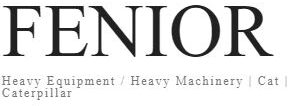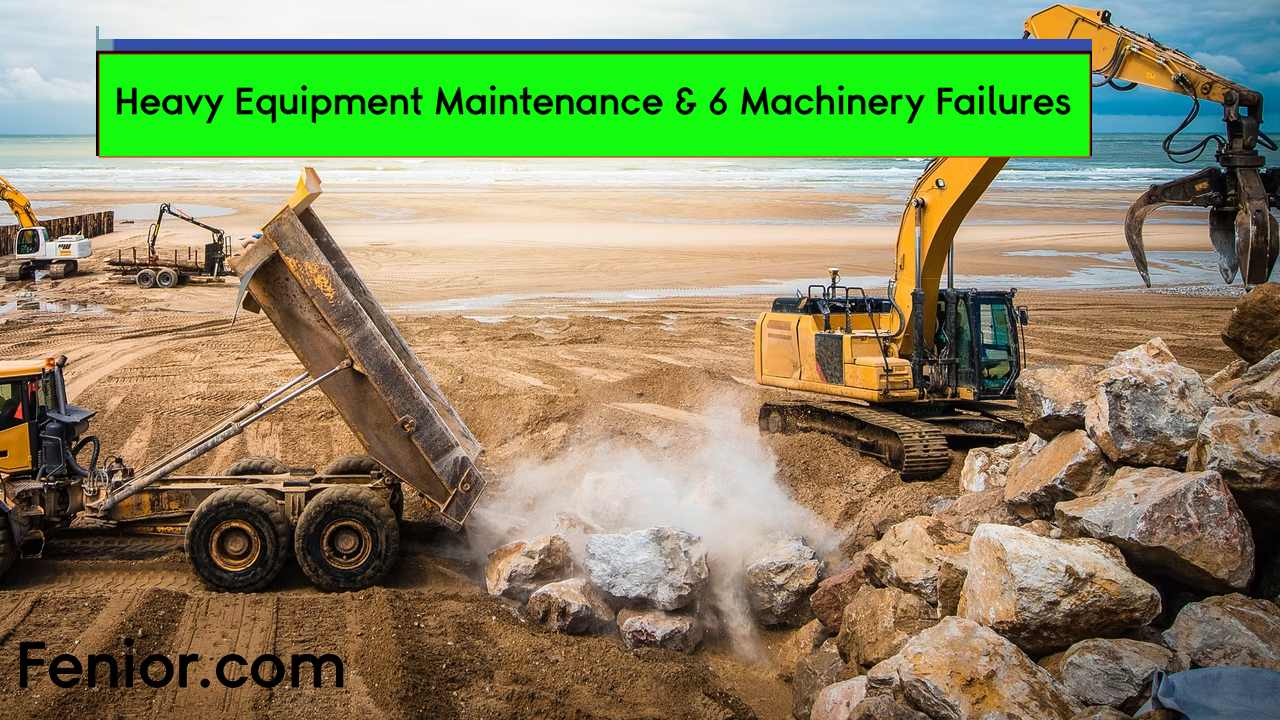Heavy Equipment Maintenance-refers to the procedure of checking, maintaining, fixing, and replacing parts of heavy equipment and vehicles used in the construction, mining, agricultural, and other industries.
Bulldozers, excavators, cranes, and tractors are just a few examples of the equipment that needs routine maintenance to stay in top working order and to avoid expensive breakdowns and downtime.
Changes in oil and filters, lubrication of moving parts, examination of belts, hoses, and tyres, cleaning of air filters, replacement of worn-out or broken parts, and testing of electrical and hydraulic systems are some examples of maintenance procedures for heavy machinery.
Operators and owners of heavy equipment can lower the risk of accidents and increase the lifespan of their machinery by doing routine maintenance to make sure their apparatus is secure, dependable, and effective.
Heavy Equipment Maintenance
Here are some quick and easy things you can do now to prolong the lifespan and return on investment of your construction equipment.
Commit To A Preventive Maintenance Program

Making a commitment to a preventative maintenance programme is one of the most crucial elements to maximising the machine life of heavy equipment.
To ensure that all maintenance chores are finished on time, this entails developing a regular maintenance schedule and adhering to it consistently.
Preventive maintenance can aid in spotting possible faults before they escalate into bigger problems, cutting downtime and lengthening the equipment’s lifespan.
1. Conduct Regular Inspections
It’s critical to regularly inspect the equipment in addition to adhering to a preventive maintenance programme.
Inspections can assist find any faults that could have gone unnoticed during routine maintenance and can help stop minor problems from becoming more serious ones.
2. Keep Equipment Clean
Another crucial step to maximise machine life is to keep heavy equipment clean.
Over time, dirt, dust, and debris can accumulate and harm the machinery.
This can be avoided with routine cleaning, which will also maintain the equipment’s peak performance.
3. Check Fluid Levels and Quality
Regular fluid quality and level checks are essential for the proper operation of heavy machinery.
This covers the amount of engine oil, hydraulic fluid, and coolant.
The equipment’s lifespan can be increased by maintaining the correct quantities of these fluids and making sure they are clean and free of impurities.
4. Use High-Quality Parts and Components
Maximising the life of heavy equipment machines also depends on the use of high-quality parts and components.
Low-quality components may malfunction too soon and harm other parts, necessitating costly repairs and downtime.
5. Train Operators Properly
To ensure that heavy machinery is operated safely and effectively, proper operator training is essential.
To avoid equipment damage and encourage safe operation, operators should receive training on suitable operation methods and maintenance practises.
6. Store Equipment Properly
When not in use, heavy equipment needs to be stored appropriately.
This entails covering it to shield it from the elements and keeping it in a dry, safe place.
Rust and corrosion, as well as damage from weather conditions, can be avoided with proper storage.
7. Keep Detailed Maintenance Records
Finally, it’s crucial to keep thorough maintenance records in order to keep track of maintenance chores, spot any problems, and make sure that all required maintenance is carried out.
These records can be used to monitor the life of the equipment and assist with future purchasing decisions.
Identify the Main Reasons for Machinery Failure
Machine failure can be caused by a variety of circumstances.
Among the primary reasons for mechanical failure are:
1. Wear and Tear
Heavy equipment frequently experiences severe wear and tear, particularly in sectors like mining, construction, and agriculture.
Machine wear can be accelerated by repeated use, which can ultimately result in equipment failure.
2. Lack of Maintenance
Another significant factor in equipment failure is a lack of routine maintenance.Equipment that isn’t properly maintained may experience component failures, performance declines, and other problems that eventually cause failure.
3. Misuse
Misuse of the equipment, such as running it outside of its intended parameters or overloading it above its design capability, can also cause machinery to malfunction.
Equipment failure may result from early wear and strain on parts and components.
4. Environmental Factors
Extreme weather conditions, humidity, dust, and other environmental detritus can all cause equipment failure.
As an illustration, dust and debris can block filters and other parts of the machine, which can lead to overheating and eventual failure.
5.Human Error
Another frequent reason for machinery failure is human error.
This can involve misusing equipment, receiving poor training, and disregarding maintenance guidelines.
6. Manufacturing Defects
Additionally, equipment can malfunction as a result of manufacturing flaws like poor workmanship, inferior materials, or flawed design.
To reduce downtime and maintenance costs, the root causes of mechanical failure must be found and addressed.
Machine failure risk can be decreased through routine maintenance, good equipment use, and operator training.
Learn Everything You Can About Your Machines

The key to extending the life of your equipment and reducing downtime is to learn as much as you can about it.The following are some justifications for why it’s crucial to study as much as you can about your machines:
1. Knowledge of How Machines Operate
You can have a better understanding of how your equipment work and the potential problems by studying about their parts and how they operate.This information can assist you in spotting possible difficulties before they develop into more significant ones.
2. Identifying Maintenance Needs
Understanding your equipment’ maintenance requirements is essential to keeping them in good working order.You can make sure that your equipment receives the proper care at the appropriate times by learning the maintenance requirements for it.
3. Improving Efficiency
You can get the most out of your machines if you know how to use them effectively.For instance, you can maximise the performance and reduce wear and tear on your machines by knowing the best working parameters for them.
4.Reducing Downtime
You can lessen the likelihood of unplanned downtime by being knowledgeable about your machines and their maintenance requirements.Your machines can work smoothly and help prevent breakdowns by doing routine maintenance and spotting problems early.
5.Improving Security
Your machines can be used securely and correctly if you are aware of their safety features and requirements.Accidents and injuries can be avoided with the right training and awareness of safety procedures.
Conclusion
In conclusion, heavy equipment maintenance is essential to extending the life, improving performance, and ensuring the safety of your machinery.
Regular inspections, planned maintenance chores, and continuing equipment performance monitoring are all essential components of a thorough maintenance programme.
You can decrease downtime, lower repair costs, boost productivity, extend equipment life, and preserve resale value by committing to a preventive maintenance programme, identifying the main causes of machinery failure, learning everything you can about your machines, and implementing ongoing maintenance procedures.
Maintaining your heavy machinery is an investment in the health and success of your company.

